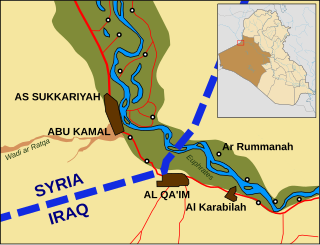 W
WThe 2008 Abu Kamal raid was an attack carried out by helicopter-borne CIA paramilitary officers from Special Activities Division and United States Special Operations Command, Joint Special Operations Command inside Syrian territory on October 26, 2008. The Syrian government called the event a "criminal and terrorist" attack on its sovereignty, alleging all of the reported eight fatalities were civilians. An unnamed U.S. military source, however, alleges that the target was a network of foreign fighters who planned to travel through Syria to join the Iraqi insurgency against the United States-led Coalition in Iraq and the Iraqi government.
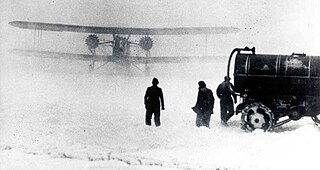 W
WThe Air Mail scandal, also known as the Air Mail fiasco, is the name that the American press gave to the political scandal resulting from a 1934 congressional investigation of the awarding of contracts to certain airlines to carry airmail and to the use of the U.S. Army Air Corps to fly the mail.
 W
WDuring World War II, some members of the United States military mutilated dead Japanese service personnel in the Pacific theater. The mutilation of Japanese service personnel included the taking of body parts as "war souvenirs" and "war trophies". Teeth and skulls were the most commonly taken "trophies", although other body parts were also collected.
 W
WThe Amiriyah shelter bombing was an aerial attack that killed at least 408 civilians on 13 February 1991 during the Persian Gulf War, when an air-raid shelter, in the Amiriyah neighborhood of Baghdad, Iraq, was destroyed by the U.S. Air Force with two laser-guided "smart bombs".
 W
WIn 2005, The New York Times obtained a 2,000-page United States Army investigatory report concerning the homicides of two unarmed civilian Afghan prisoners by U.S. military personnel in December 2002 at the Bagram Theater Internment Facility in Bagram, Afghanistan and general treatment of prisoners. The two prisoners, Habibullah and Dilawar, were repeatedly chained to the ceiling and beaten, resulting in their deaths. Military coroners ruled that both the prisoners' deaths were homicides. Autopsies revealed severe trauma to both prisoners' legs, describing the trauma as comparable to being run over by a bus. Seven soldiers were charged in 2005.
 W
WThe Brownsville affair, or the Brownsville raid, was an incident of racial discrimination that occurred in 1906 in the southwestern United States due to resentment by white residents of Brownsville, Texas, of the Buffalo Soldiers, black soldiers in a segregated unit stationed at nearby Fort Brown. When a white bartender was killed and a white police officer wounded by gunshots one night, townspeople accused the members of the African-American 25th Infantry Regiment. Although their commanders said the soldiers had been in the barracks all night, evidence was allegedly planted against the men.
 W
WOn May 11, 2009, five United States military personnel were fatally shot at a military counseling clinic at Camp Liberty, Iraq by Army Sergeant John M. Russell. In the days before the killings, witnesses stated Russell had become distant and was having suicidal thoughts.
 W
WThe Chase Aircraft Company, founded in 1943, was an aircraft manufacturer of the United States of America, primarily constructing gliders and military transport aircraft. Lacking space for expansion, the company was purchased by Henry J. Kaiser in 1951. Plans to produce the C-123 transport for the United States Air Force collapsed amid scandal, and the company closed in 1953. A successor company, Stroukoff Aircraft, continued experimental work for several years before closing in 1959.
 W
WDanny Chen was an American U.S. Army soldier who served in Afghanistan in the early 21st century whose death resulted in a military investigation and charges against eight US soldiers, ultimately with four being court martialed.
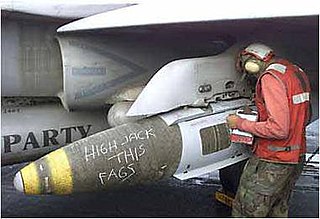 W
WThe "fag bomb" was a U.S. military fighter-mounted bomb, photographed aboard the aircraft carrier USS Enterprise in October 2001 during the United States' invasion of Afghanistan while in the Arabian Sea.
 W
WThe Gansler Commission investigated the contingency contracting crisis in 2007, named after its chair, Jacques S. Gansler, a former Under Secretary of Defense for Acquisition, Technology and Logistics. In August, then United States Secretary of the Army, Pete Geren, established the independent Commission on Army Acquisition and Program Management in Expeditionary Operations to review recent operations and provide recommendations. This commission released what became known as the Gansler Report in October 2007.
 W
WThe Haditha massacre was a series of killings on November 19, 2005, in which a group of United States Marines killed 24 unarmed Iraqi civilians. The killings occurred in Haditha, a city in Iraq's western province of Al Anbar. Among the dead were men, women, elderly people and children as young as 1, who were shot multiple times at close range while unarmed. It was alleged that the killings were a response to the attack on a convoy of Marines with an improvised explosive device that killed Lance Corporal Miguel Terrazas.
 W
WOwen Paul Honors Jr., is a retired United States Navy captain who served as commanding officer of the nuclear-powered aircraft carrier USS Enterprise before being relieved of his command due to videos he had made and shown aboard the same vessel while he was serving as executive officer.
 W
WThe Insurgents' bodies incident is an incident involving American soldiers and Afghan policemen who posed with body parts of dead insurgents during the War in Afghanistan.
 W
WOn 19 April 1989, the Number Two 16-inch gun turret of the United States Navy battleship USS Iowa (BB-61) exploded. The explosion in the center gun room killed 47 of the turret's crewmen and severely damaged the gun turret itself. Two major investigations were undertaken into the cause of the explosion, one by the U.S. Navy and then one by the Government Accountability Office (GAO) and Sandia National Laboratories. The investigations produced conflicting conclusions.
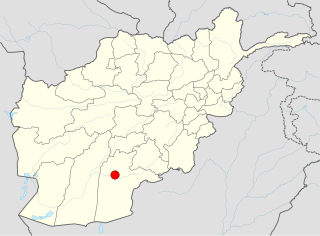 W
WThe Kandahar massacre, more precisely identified as the Panjwai massacre, occurred in the early hours of 11 March 2012, when United States Army Staff Sergeant Robert Bales murdered sixteen civilians and wounded six others in the Panjwayi District of Kandahar Province, Afghanistan. Nine of his victims were children, and eleven of the dead were from the same family. Some of the corpses were partially burned. Bales was taken into custody later that morning when he told authorities, "I did it". On 23 August 2013, a jury at Joint Base Lewis-McChord in Fort Lewis, Washington sentenced him to life in prison without parole.
 W
WThe Mahmudiyah rape and killings were war crimes involving the gang-rape and murder of 14-year-old Iraqi girl Abeer Qassim Hamza al-Janabi and the murder of her family by United States Army soldiers on March 12, 2006. It occurred in the family's house to the southwest of Yusufiyah, a village to the west of the town of Al-Mahmudiyah, Iraq. Other members of al-Janabi's family murdered by Americans included her 34-year-old mother Fakhriyah Taha Muhasen, 45-year-old father Qassim Hamza Raheem, and 6-year-old sister Hadeel Qassim Hamza Al-Janabi. The two remaining survivors of the family, 9-year-old brother Ahmed and 11-year-old brother Mohammed, were at school during the massacre and orphaned by the event.
 W
WThe Maywand District murders were the murders of at least three Afghan civilians perpetrated by a group of U.S. Army soldiers from June 2009 to June 2010, during the War in Afghanistan. The soldiers, who referred to themselves as the "Kill Team", were members of the 3rd Platoon, Bravo Company, 2nd Battalion, 1st Infantry Regiment, and 5th Brigade, 2nd Infantry Division. They were based at FOB Ramrod in Maiwand, from Kandahar Province of Afghanistan.
 W
WThe McDonnell Douglas/General Dynamics A-12 Avenger II was a proposed American attack aircraft from McDonnell Douglas and General Dynamics. It was to be an all-weather, carrier-based stealth bomber replacement for the Grumman A-6 Intruder in the United States Navy and Marine Corps. Its Avenger II name was taken from the Grumman TBF Avenger of World War II.
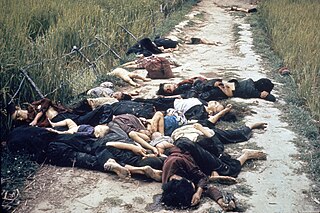 W
WThe Mỹ Lai massacre was the Vietnam War mass murder of unarmed South Vietnamese civilians by U.S. troops in Sơn Tịnh District, South Vietnam, on 16 March 1968. Between 347 and 504 unarmed people were killed by U.S. Army soldiers from Company C, 1st Battalion, 20th Infantry Regiment and Company B, 4th Battalion, 3rd Infantry Regiment, 11th Brigade, 23rd (Americal) Infantry Division. Victims included men, women, children, and infants. Some of the women were gang-raped and their bodies mutilated, as were children as young as 12. Twenty-six soldiers were charged with criminal offenses, but only Lieutenant William Calley Jr., a platoon leader in C Company, was convicted. Found guilty of killing 22 villagers, he was originally given a life sentence, but served only three-and-a-half years under house arrest.
 W
WThe 2011 NATO attack in Pakistan was a border skirmish that occurred when US-led NATO forces engaged Pakistani security forces at two Pakistani military checkposts along the Afghanistan–Pakistan border on Saturday, 26 November 2011, with both sides later claiming that the other had fired first. Two NATO Apache helicopters an AC-130 gunship and two F-15E Eagle fighter jets entered by varying estimates as little as 200 meters (660 ft) to up to 2.5 kilometres (1.6 miles), into the Pakistani border area of Salala at 2 a.m. local time. They came from across the border in Afghanistan and opened fire at two border patrol check-posts, killing 28 Pakistani soldiers and wounding 12 others. This attack resulted in a deterioration of relations between Pakistan and the United States. The Pakistani public reacted with protests all over the country and the government took measures adversely affecting the US exit strategy from Afghanistan, including the evacuation of Shamsi Airfield and closure of the NATO supply line.
 W
WThe Newport sex scandal arose from a 1919 investigation by the United States Navy into homosexual acts by Navy personnel and civilians in Newport, Rhode Island. The investigation was noted for its controversial methods of intelligence gathering, specifically its use of enlisted personnel to investigate alleged homosexuals by engaging them sexually. A subsequent trial attracted national news coverage and provoked a congressional investigation, which concluded with Secretary of the Navy Josephus Daniels and Assistant Secretary of the Navy Franklin D. Roosevelt being formally rebuked by a Congressional committee.
 W
WThe Nisour Square Massacre occurred on September 16, 2007, when employees of Blackwater Security Consulting, a private military company contracted by the US government to provide security services in Iraq, shot at Iraqi civilians, killing 17 and injuring 20 in Nisour Square, Baghdad, while escorting a U.S. embassy convoy. The killings outraged Iraqis and strained relations between Iraq and the United States. In 2014, four Blackwater employees were tried and convicted in U.S. federal court; one of murder, and the other three of manslaughter and firearms charges.
 W
WTeofil Nelu Peter was a Romanian rock musician and bass player for Compact.
 W
WThe Raid on Khataba, also referred to as the raid on Gardez, was an incident in the War in Afghanistan in which five civilians, including two pregnant women and a teenage girl, were killed by U.S. forces on February 12, 2010. All were shot when U.S. Army Rangers raided a house in Khataba village, outside the city of Gardez, where dozens of people had gathered earlier at the home to celebrate the naming of a newborn baby. Initially, U.S. Military officials implied the three women were killed prior to the raid by family members, reporting that the women had been found "tied up, gagged and killed." But investigators sent by the Afghan government reported, based on interviews and pictures of the scene, that the special operation forces removed bullets from the victims' bodies and cleaned their wounds as part of an attempted cover-up. NATO denied this allegation, and Afghan investigator Merza Mohammed Yarmand stated, "We can not confirm it as we had not been able to autopsy the bodies." The US military later admitted that the three women were killed by the special operations unit during the raid.
 W
WThe Sand Creek massacre was a massacre of Cheyenne and Arapaho people by the U.S. Army in the American Indian Wars that occurred on November 29, 1864, when a 675-man force of the Third Colorado Cavalry under the command of U.S. Army Colonel John Chivington attacked and destroyed a village of Cheyenne and Arapaho people in southeastern Colorado Territory, killing and mutilating an estimated 70–500 Native Americans, about two-thirds of whom were women and children. The location has been designated the Sand Creek Massacre National Historic Site and is administered by the National Park Service. This was part of a series of events known as the Colorado War and was preceded by the Hungate massacre.
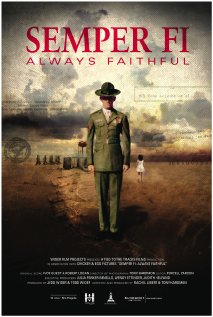 W
WSemper Fi: Always Faithful, is a documentary film about the Camp Lejeune water contamination. The film made the 15 film short list for consideration for a 2012 Academy Award for best documentary feature. The film, which debuted at the Tribeca Film Festival in April 2011, has a 100% "fresh" rating on review aggregator website Rotten Tomatoes, indicating highly positive critical reviews. The film won a documentary editing award at Tribeca and The Ridenhour Documentary Film Prize 2012. The Society of Professional Journalists presented it with its Sigma Delta Chi Award for Best Television Documentary (Network).
 W
WThe Sơn Thắng massacre, [ʂəːŋ˧˧ tʰaŋ˦˧˥]) was a massacre conducted by the United States Marine Corps during Operation Imperial Lake on 19 February 1970, in which five women and 11 children were killed. The Marines reported the civilians killed as being Vietcong (VC) killed in a firefight. These incidents were reported by civilians and charges were brought up against the Marines. Four Marines were court-martialled and one was sentenced to 5 years in prison and the other to life, but Major General Charles F. Widdecke reduced each sentence to less than year.
 W
WThe Tailhook scandal was a military scandal and controversy in which United States Navy and U.S. Marine Corps aviation officers were alleged to have sexually assaulted up to 83 women and seven men, or otherwise engaged in "improper and indecent" conduct at the Las Vegas Hilton in Las Vegas, Nevada. The events took place at the 35th Annual Tailhook Association Symposium from September 5 to 8, 1991. The event was subsequently abbreviated as "Tailhook '91" in media accounts.
 W
WOn April 18, 2012 the Los Angeles Times released photos of U.S. soldiers posing with body parts of dead insurgents, after a soldier in the 82nd Airborne Division gave the photos to the L.A. Times to draw attention to "a breakdown in security, discipline and professionalism" among U.S. troops operating in Afghanistan. The pictures had been taken at a police station in Zabol province in February 2010.
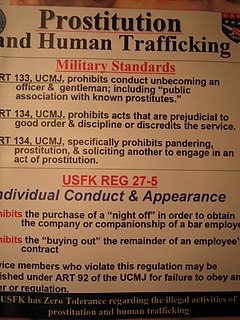 W
WDuring and following the Korean War, the United States military used regulated prostitution services in South Korean military camptowns. Despite prostitution being illegal since 1948, women in South Korea were the fundamental source of sex services for the U.S. military as well as a component of American and Korean relations. The women in South Korea who served as prostitutes are known as kijichon (기지촌) women and were visited by the U.S. military, Korean soldiers and Korean civilians. Kijich'on women were from Korea, Philippines, China, Vietnam, Thailand, Sri Lanka, Nepal, Indonesia and the Commonwealth of Independent States, specifically Russia and Kazakhstan.
 W
WA video of U.S. Marines urinating on Taliban fighters was posted to websites in January 2012. The video was widely viewed on YouTube, TMZ and other sites, and caused anger and outrage in Afghanistan and the Middle East.
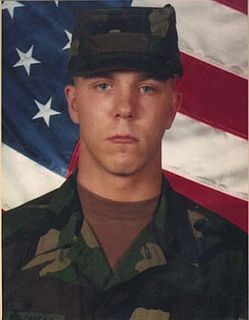 W
WBarry Winchell was an infantry soldier in the United States Army, whose murder by a fellow soldier, Calvin Glover, became a point of reference in the ongoing debate about the policy known as "Don't ask, don't tell", which did not allow U.S. military gays, bisexuals, and lesbians to be open about their sexual orientation..
 W
WThe Yangju highway incident, also known as the Yangju training accident or Highway 56 Accident, occurred on June 13, 2002, in Yangju, Gyeonggi-do, South Korea. A United States Army armored vehicle-launched bridge, returning to base in Uijeongbu on a public road after training maneuvers in the countryside, struck and killed two 14-year-old South Korean schoolgirls, Shin Hyo-sun and Shim Mi-seon.